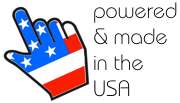Choosing the right keywords and related phrases is crucial for any business looking to stand out in a crowded market. Effective keyword optimization can enhance your online presence, attract relevant traffic, and ultimately drive more sales.
Here we’ll discuss how to choose and implement the right keywords for your business, with specific examples and actionable steps for retail, restaurants, hospitality, construction, healthcare, and professional services.
Why Keywords Matter
Keywords aren’t just search terms—they’re the bridge connecting your business to potential customers. When used correctly, they help:
- Drive more targeted traffic to your website
- Increase conversion rates by reaching users ready to take action
- Enhance your local and industry-specific presence
Incorrect or vague keywords may confuse your target audience, reduce online visibility, and even risk penalties from search engines. That’s why a thoughtful keyword strategy is crucial for every digital and print campaign.
Actionable Steps to Keyword Mastery
1. Uncover Your Core Keywords:
- Brainstorm: List words and phrases customers might use to find your products or services.
- Customer Surveys: Ask your customers directly how they would search for your business.
- Competitor Analysis: Analyze competitor websites and marketing materials to identify keywords they are targeting.
2. Leverage Keyword Research Tools:
- Google Keyword Planner: Discover new keyword ideas, analyze search volume, and understand keyword competition.
- SEMrush, Ahrefs: Gain in-depth keyword insights, track competitor rankings, and analyze backlink profiles.
- Moz Keyword Explorer: Another powerful tool for keyword research and optimization.
3. Optimize Your Website Content:
- Strategic Placement: Incorporate keywords naturally within page titles, headings, meta descriptions, and body text.
- Semantic HTML: Use header tags (H1-H6) to structure content logically and signal keyword importance to search engines.
- Long-Tail Keywords: Target longer, more specific phrases to attract highly qualified leads. Example: "best Italian restaurant for large groups Chicago."
4. Enhance User Experience:
- Clear & Concise Content: Write for humans first, ensuring your content is easy to read and understand.
- Engaging Visuals: Use high-quality images and videos to enhance user engagement.
- Fast Loading Speed: Optimize your website for speed to improve user experience and search engine rankings.
5. Optimize Images & Links:
- Alt Text for Images: Use descriptive alt text for all images, incorporating relevant keywords.
- Descriptive Anchor Text: Use keyword-rich anchor text for internal and external links.
6. Optimize for Voice Search:
- Use natural phrases like “Where can I find a dog-friendly patio in Chicago?” for voice search optimization.
7. Leverage Local SEO:
- Include your city + service in titles (e.g., “Nashville Wedding Photographer | Affordable Packages”) for local SEO.
Avoid These Pitfalls
- Keyword Stuffing: “Best best best pizza in NYC” sounds robotic. Keep it natural.
- Ignoring Mobile: More than 60% of searches happen on phones. Test mobile-friendliness with Google’s Mobile-Friendly Test.
Industry-Specific Insights & Actionable Steps
1. Understand Your Audience & Industry Jargon
Each industry has its own unique language and customer preferences. Understanding these nuances is key to selecting the right keywords.
- Retail: Customers often search for specific products, brands, and categories. Use terms like "women's clothing," "men's shoes," "home decor," and "electronics."
- Restaurants: Focus on cuisine types, menu items, and dining experiences. Keywords like "Italian restaurant," "vegan menu," and "dine-in specials" are essential.
- Hospitality: Emphasize location, amenities, and services. Use phrases like "beachfront hotel," "spa services," and "family-friendly resort."
- Construction: Highlight services, materials, and projects. Keywords such as "home renovation," "commercial construction," and "building materials" are effective.
- Healthcare: Use terms that describe your services and specialties. Keywords like "family doctor," "mental health counseling," and "physical therapy" are important.
- Professional Services: Emphasize the type of service and the value you provide. Use phrases like "tax preparation," "legal consultation," and "business coaching."
2. Avoid Confusion & Be Clear
Clarity is crucial when it comes to keywords. Use descriptive and concise language to grab the user's attention and motivate them to take action.
- Retail: Instead of "it" or "that," use specific product names like "Nike Air Max" or "Levi's 501."
- Restaurants: Avoid vague terms like "good food" and use specific menu items like "margherita pizza" or "grilled salmon."
- Hospitality: Be clear about what you offer. Use terms like "luxury suite" or "breakfast buffet" instead of "nice room."
- Construction: Use clear service descriptions like "kitchen remodeling" or "deck building" instead of just "home improvement."
- Healthcare: Be specific about your services. Use terms like "pediatric care" or "chronic pain management" instead of just "medical help."
- Professional Services: Clearly state your services. Use terms like "estate planning" or "financial audit" instead of just “legal services."
3. Use Natural Language
Natural language is how your customers and prospects search online. Incorporate these terms into your content to increase relevance.
- Retail: If your customers search for "best deals on shoes," use that phrase in your content.
- Restaurants: If "best pizza in town" is a common search, include it in your menu descriptions and website.
- Hospitality: Use phrases like "best beach hotels" or "family-friendly resorts" to match search queries.
- Construction: Incorporate terms like "affordable home renovation" or "quick deck installation" to align with customer searches.
- Healthcare: Use natural language like "top-rated family doctor" or "best mental health clinic."
- Professional Services: Use phrases like "trusted tax preparer" or "reliable business coach" to match customer queries.
4. Identify & Implement Important Keywords
Start by identifying the keywords and phrases that are most important to your visitors. Use tools like Google Ads Keyword Planner to help you.
- Retail: Identify top-selling products and use related terms. For example, if "Nike Air Max" is a top seller, use related phrases like "Nike Air Max 2025” or "Nike Air Max deals."
- Restaurants: Identify popular dishes and dining experiences. Use phrases like "best pizza in [city]" or "romantic dinner for two."
- Hospitality: Identify key amenities and services. Use phrases like "beachfront rooms" or "all-inclusive resort deals."
- Construction: Identify common projects and materials. Use phrases like "bathroom remodeling" or "pressure-treated lumber."
- Healthcare: Identify common health issues and services. Use phrases like "childhood vaccinations" or "couples therapy."
- Professional Services: Identify common client needs. Use phrases like "small business accounting" or "estate planning services."
5. Strategic Placement of Keywords
Place your keywords and related phrases in strategic locations throughout your content to maximize their impact.
- Headings: Use top keywords in your headings to grab attention.
- Navigation & Page Titles: Ensure your navigation and page titles are keyword-rich.
- Hyperlinks (Anchor Text): Use descriptive anchor text that includes your keywords.
- Image ALT Text: Describe images using relevant keywords.
Example for Retail
-
Headings:
<h1>Best Deals on Women's Clothing</h1> - Navigation: "Women's Shoes" | "Men's Clothing" | "Home Decor"
- Hyperlinks: "Shop our latest Nike Air Max 2025 collection"
-
Image ALT Text:
alt="Women's Nike Air Max shoes on display"
Example for Restaurants
-
Headings:
<h1>Experience the Best Italian Cuisine in [City]</h1> - Navigation: "Menu" | "Reservations" | "Specials"
- Hyperlinks: "View our vegan menu options"
-
Image ALT Text:
alt="Grilled salmon with lemon and herbs"
Example for Hospitality
-
Headings:
<h1>Book Your Luxury Suite at [Hotel Name]</h1> - Navigation: "Rooms" | "Amenities" | "Book Now"
- Hyperlinks: "Explore our all-inclusive resort deals"
-
Image ALT Text:
alt="Beachfront luxury suite with ocean view"
Example for Construction
-
Headings:
<h1>Affordable Home Renovation Services</h1> - Navigation: "Kitchens" | "Bathrooms" | "Decks"
- Hyperlinks: "Get a free estimate for your bathroom remodeling project"
-
Image ALT Text:
alt="Before and after photos of a kitchen renovation"
Example for Healthcare
-
Headings:
<h1>Top-Rated Family Doctor in [City]</h1> - Navigation: "Services" | "Appointments" | "Reviews"
- Hyperlinks: "Learn more about our childhood vaccination services"
-
Image ALT Text:
alt="Family doctor examining a child"
Example for Professional Services
-
Headings:
<h1>Trusted Tax Preparation Services</h1> - Navigation: "Services" | "About Us" | "Contact"
- Hyperlinks: "Get a free consultation for your small business accounting needs"
-
Image ALT Text:
alt="Accountant working with a client"
6. Optimize for Readability & User Experience
Optimizing for search engines is important, and ensuring your content is readable and provides value to your audience is a part of this.
- Retail: Use short, concise product descriptions that highlight key features and benefits.
- Restaurants: Write menu descriptions that entice customers and highlight unique dishes.
- Hospitality: Provide detailed room descriptions and highlight amenities.
- Construction: Offer clear, step-by-step project guides and before-and-after photos.
- Healthcare: Write informative articles and blog posts about common health issues and treatments.
- Professional Services: Create helpful guides and FAQs that address common client questions.
7. Review & Update Regularly
Keyword optimization is an ongoing process. Regularly review and update your keywords to stay relevant.
- Retail: Track sales data and search trends to identify new keywords.
- Restaurants: Monitor customer reviews and feedback to refine your keyword list.
- Hospitality: Stay updated on travel trends and customer preferences.
- Construction: Keep up with industry trends and new materials.
- Healthcare: Follow the latest medical research and patient needs.
- Professional Services: Stay informed about changes in regulations and client needs.
Final Tip: Make SEO a Habit, Not a Chore
Set aside 30 minutes weekly to update keywords, analyze traffic, and tweak content. Small efforts compound into big results.
Ongoing Optimization: The Key to Long-Term Success
Keyword optimization is a continuous process. Regularly review and refine your keyword strategy based on performance data, industry trends, and evolving customer behavior. Track your rankings, analyze website traffic, and adapt your keywords accordingly to stay ahead of the competition.
By consistently refining your approach, you'll ensure your business remains visible and attracts the right customers whether you’re in retail, restaurants, hospitality, construction, healthcare, or professional services. This process will make a significant difference in your marketing efforts to maintaining a competitive edge in the digital world.













